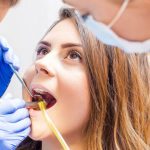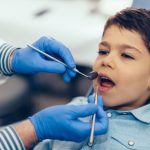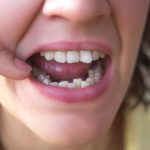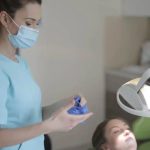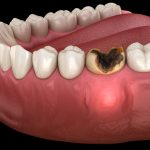Why Teeth Break: Understanding the Sudden Causes and Prevention Methods
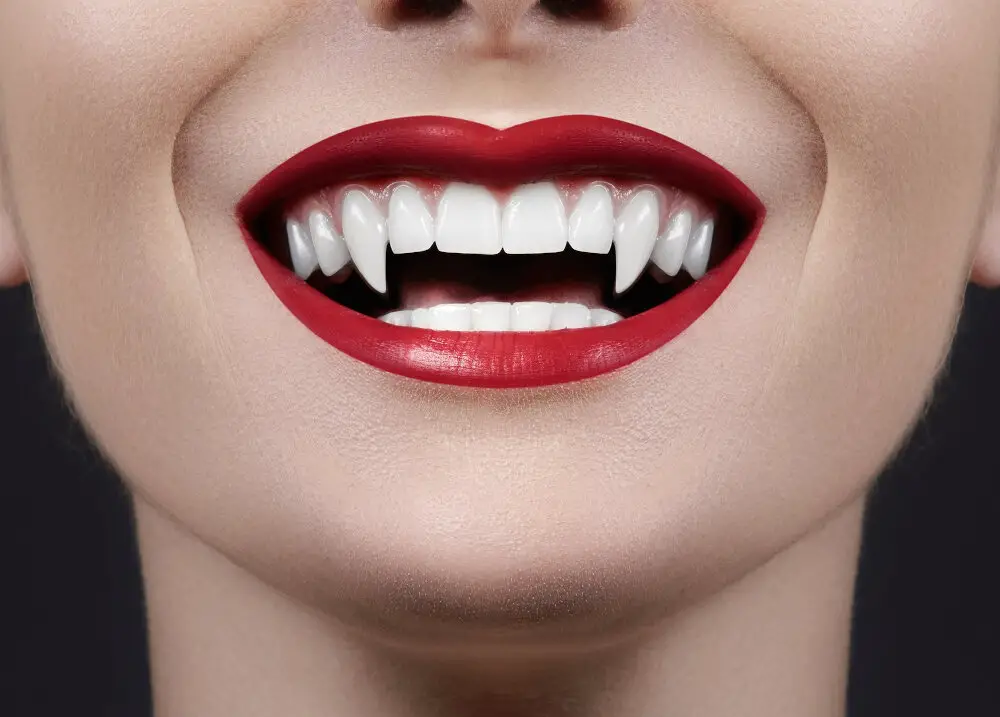
Teeth are one of the most important parts of our body. They not only help us in chewing and digesting food, but also play a crucial role in communication and self-expression. However, our teeth are not invincible and can break or fracture due to sudden impact or wear and tear over time. Understanding the sudden causes of broken teeth and the prevention methods can help us maintain our dental health and avoid painful and costly treatments. Dental injuries can occur due to a number of reasons. Accidents, sports injuries, falls, and fights are some of the most common causes of sudden broken teeth. Sometimes, even biting down on hard food or objects can lead to a broken tooth. Other factors that can contribute to tooth fractures include aging, tooth decay, gum disease, bruxism (teeth grinding), and poor oral hygiene. It is important to identify the cause of tooth breakage in order to prevent further damage and seek appropriate treatment. In this article, we will explore the sudden causes of broken teeth and the tips to prevent them.
Teeth are incredibly strong and durable, but they are not indestructible. There are various reasons why teeth can break, crack, or chip. One of the most common causes is trauma or injury, such as a fall or a blow to the face. Teeth can also break due to biting down on hard objects or food that is too tough to chew. Poor oral hygiene and untreated cavities can weaken teeth, making them more susceptible to breaking. Additionally, teeth that have undergone extensive dental work, such as fillings or root canals, may also be at a higher risk of breaking. Understanding the causes of tooth breakage is crucial in preventing dental emergencies and maintaining good oral health.
It is crucial to understand the causes and prevention methods of teeth breakage as it can lead to severe consequences such as pain, difficulty in chewing, and even tooth loss. Factors such as poor dental hygiene, eating hard foods, grinding teeth, and trauma can cause teeth to break suddenly. By understanding these causes, individuals can take preventive measures such as maintaining good oral hygiene, avoiding hard foods, wearing mouthguards during sports activities, and seeking timely dental care. Prevention is always better than cure, and taking necessary precautions can save individuals from the discomfort and expense of tooth repair or replacement. Therefore, it is essential to educate oneself about the causes and prevention methods of teeth breakage to ensure good oral health and overall well-being.
Common Causes of Teeth Breaking
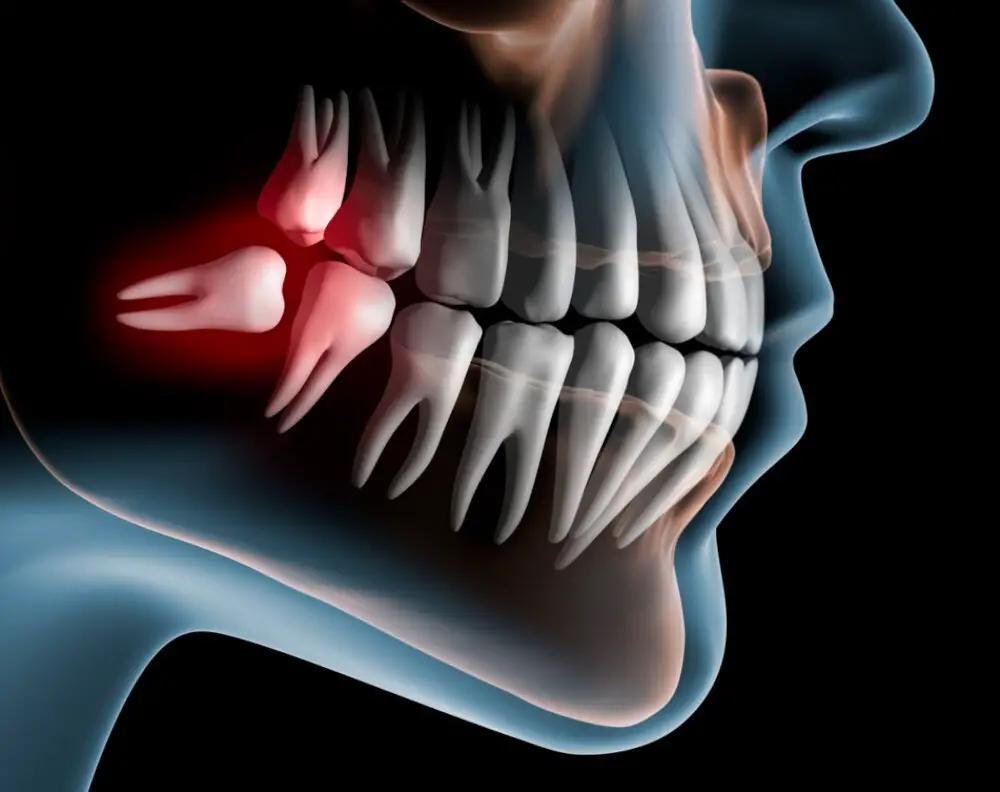
Teeth breaking can happen to anyone, regardless of their age or dental hygiene. There are various reasons why teeth may suddenly break, and understanding these causes can help prevent such occurrences in the future. One of the most common causes of teeth breaking is trauma or injury to the mouth. This can occur due to various reasons, such as a fall, being hit in the face, or biting down on a hard object. When the teeth are subjected to excessive force, they can crack, chip, or break, leading to pain and discomfort. People who play contact sports or engage in activities that involve physical contact should wear mouthguards to protect their teeth from such injuries. Another common cause of teeth breaking is tooth decay or cavities. When bacteria build up in the mouth, they can produce acids that erode the enamel of the teeth, leading to cavities. If left untreated, these cavities can spread to the inner layers of the tooth, causing it to weaken and eventually break. Poor dental hygiene, a diet high in sugar and carbohydrates, and not visiting the dentist regularly can increase the risk of tooth decay and ultimately, teeth breaking. Therefore, it is essential to maintain good oral hygiene practices, such as brushing twice a day, flossing daily, using mouthwash, and visiting the dentist for regular check-ups and cleanings.
Accidents or trauma are one of the most common causes of teeth breakage. It can happen due to various reasons such as a fall, a blow to the face, sports injuries, or car accidents. These sudden impacts can cause significant damage to the teeth, including chips, cracks, fractures, or even complete tooth loss. Traumatic injuries to the teeth can be painful and can lead to serious dental problems if not treated promptly. Prevention methods include wearing mouthguards while playing sports or engaging in high-risk activities, avoiding chewing on hard foods or objects, and taking precautions to prevent falls or accidents. In case of any trauma, it is essential to seek immediate dental attention to prevent further damage or infection.
Cavities or tooth decay are one of the most common dental problems affecting people of all ages. It is a result of the demineralization of the tooth enamel caused by the bacteria in the mouth. The bacteria produce acids that attack the enamel, causing it to weaken and eventually break down. This breakdown of the enamel can lead to tiny holes or cavities in the teeth, which can cause pain, sensitivity, and even tooth loss if left untreated. The risk of getting cavities can be reduced by maintaining good oral hygiene habits such as regular brushing, flossing, and avoiding sugary and acidic foods and drinks. Dental checkups and cleanings are also crucial in preventing and treating cavities before they become a more serious issue.
Gum disease, also known as periodontal disease, is a common dental problem that affects the gums and bone supporting the teeth. It is caused by the buildup of bacteria in the mouth, which leads to inflammation and infection of the gum tissue. Early signs of gum disease include redness, swelling, and bleeding of the gums while brushing or flossing. If left untreated, gum disease can progress to a more severe form called periodontitis, which can cause the gums to recede, teeth to loosen, and even tooth loss. Preventative measures such as regular dental check-ups, daily brushing and flossing, and a healthy diet can help reduce the risk of gum disease.
Teeth grinding or clenching, also known as bruxism, is a common condition that affects people of all ages. This condition often occurs during sleep and can be caused by stress, anxiety, or a misaligned bite. The constant pressure and rubbing of the teeth can lead to wear and tear, chipping, and even cracking. In severe cases, bruxism can cause jaw pain, headaches, and even interfere with sleep. Prevention methods include stress management techniques, wearing a mouthguard at night, and correcting any bite issues through orthodontic treatment or dental restorations. It is important to address bruxism early on to prevent long-term damage to teeth and overall oral health.
Eating hard or crunchy foods can put excessive strain on your teeth, often causing them to break or crack. The force generated while biting down on hard foods can be too much for your teeth to handle, resulting in sudden fractures or chips. Foods like popcorn, ice, nuts, and hard candies can be particularly problematic. Additionally, biting down on hard objects like pens or pencils can also cause damage to your teeth. To avoid dental emergencies caused by eating hard foods, it is essential to be mindful of what you put in your mouth. If you have weak or damaged teeth, it is best to avoid these types of foods altogether, or at least chew them carefully and slowly to reduce the risk of dental injuries.
Signs and Symptoms of Broken Teeth
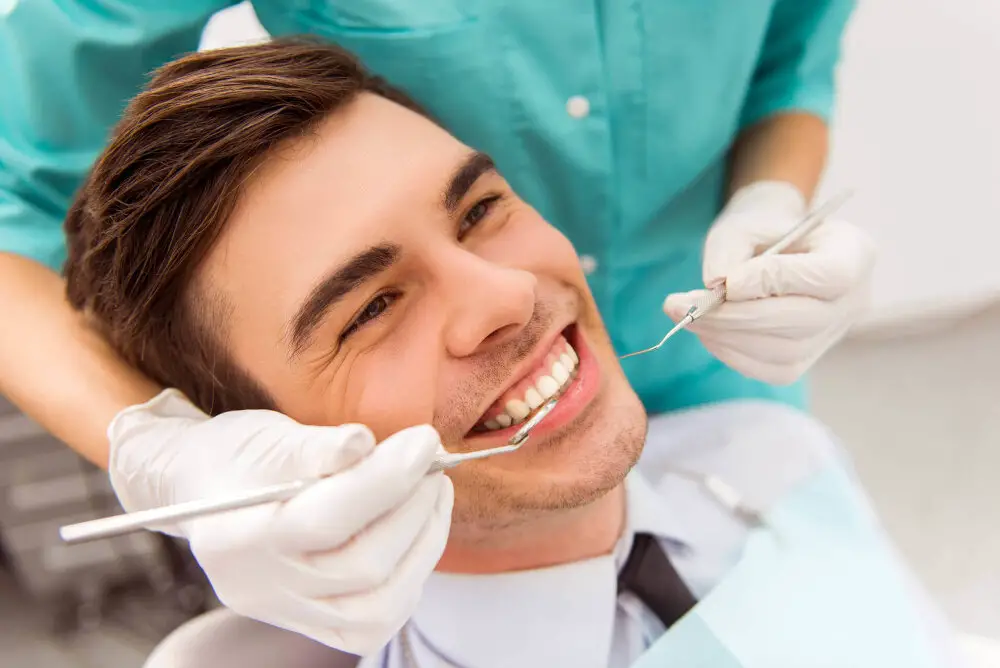
Broken teeth can be painful and frustrating, and it’s important to know the signs and symptoms so that you can seek treatment as soon as possible. One of the most common signs of a broken tooth is pain or discomfort when you bite down or chew. This can be caused by a crack or chip in the tooth, which can expose the sensitive nerves inside. You may also experience pain or sensitivity when you consume hot or cold foods or drinks, and this can be a sign that the tooth is damaged or broken. Other symptoms of a broken tooth can include swelling or redness around the affected area, as well as bleeding or discharge. If you notice any of these symptoms, it’s important to seek dental care right away to prevent further damage or infection. In addition to pain and discomfort, broken teeth can also cause cosmetic issues that can affect your confidence and self-esteem. A chip or crack in a visible tooth can be unsightly, and it can make you feel self-conscious when you smile or speak. Depending on the severity of the break, it may also affect the alignment of your other teeth, which can further impact your appearance and dental health. By understanding the signs and symptoms of broken teeth, you can take steps to prevent further damage and seek treatment promptly if you do experience any issues. With proper care and attention, you can maintain healthy, strong teeth that are free from damage and decay.
Pain or sensitivity when biting or chewing can be a sign of various dental problems, including cracked or broken teeth, tooth decay, gum disease, or worn dental fillings. These issues can cause discomfort, sharp pain, or a dull ache that can affect your ability to eat, speak, or even sleep. Ignoring these symptoms can lead to further damage or infection, so it’s essential to seek dental attention as soon as possible. Your dentist can diagnose the underlying cause of your pain and recommend suitable treatment options, such as a dental crown, filling, root canal therapy, or gum treatment. Additionally, maintaining good oral hygiene habits, including regular brushing and flossing, can prevent dental problems and keep your teeth healthy and strong.
Sharp or rough edges on teeth can be a result of several different factors, such as teeth grinding, tooth decay, or chipping. These edges can cause discomfort or even pain, especially when chewing or biting. If left untreated, they can also lead to further damage or sensitivity in the affected tooth. To prevent the development of sharp or rough edges, it is important to maintain good oral hygiene habits, such as regular brushing and flossing, and to visit the dentist for routine check-ups. In cases where damage has already occurred, the dentist may recommend treatments such as dental bonding or filing to smooth out the rough edges and restore the tooth’s shape and function.
Visible cracks or chips in teeth are a common dental concern that can cause pain and discomfort while chewing or drinking. These fractures can occur due to a variety of reasons such as trauma, biting on hard objects, or repeated exposure to hot and cold temperatures. In some cases, cracks can be so small that they are not visible to the naked eye, but they can still cause significant damage to the tooth’s structure and lead to further complications. To prevent these sudden causes of tooth breakage, it’s important to maintain good oral hygiene, avoid biting on hard objects, and visit a dentist regularly to detect and treat any dental issues early on.
Loose or wobbly teeth is a common dental issue that can lead to tooth breakage. This condition can be caused by various factors such as gum disease, tooth decay, or injury to the mouth. When the bone that supports the teeth becomes damaged or weakened, it can cause the teeth to loosen and become unstable. People with loose teeth may experience discomfort while chewing, sensitivity to hot and cold temperatures, and bleeding gums. To prevent tooth breakage, it is important to seek immediate dental attention if you notice any signs of loose teeth. Your dentist may recommend a treatment plan that includes deep cleaning, gum surgery, or tooth extraction.
Prevention Methods
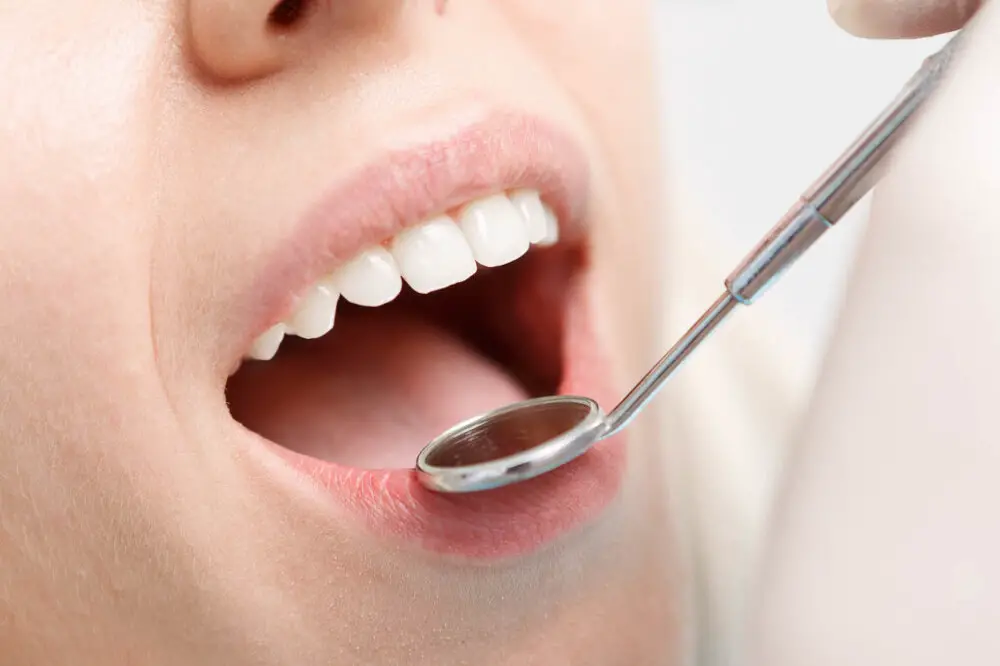
Prevention methods are crucial in maintaining good oral health and preventing teeth from breaking. One of the most effective prevention methods is practicing good oral hygiene. Brushing teeth twice a day with fluoride toothpaste and flossing regularly can help remove harmful bacteria and plaque that can weaken teeth. Additionally, using mouthwash can help kill bacteria that brushing and flossing may have missed. A balanced and healthy diet can also prevent teeth from breaking. Foods that are high in calcium, vitamin D, and phosphorus can help strengthen teeth and prevent decay. Eating crunchy fruits and vegetables, such as apples or celery, can also help clean teeth and remove harmful bacteria. Another important prevention method is protecting teeth during physical activities. For those who engage in sports or other physical activities, wearing a mouthguard can help prevent teeth from breaking due to impact. Mouthguards can also help prevent other dental injuries such as chipped teeth, knocked-out teeth, and jaw fractures. Finally, avoiding bad habits like chewing on ice, biting nails, and using teeth to open things can also help prevent teeth from breaking. By making small changes in daily habits and taking preventative measures, individuals can maintain good oral health and prevent teeth from breaking.
Regular dental checkups and cleanings are crucial in maintaining healthy teeth and preventing sudden breaks. These routine visits allow the dentist to detect any potential issues early on, such as decay or gum disease, which can weaken the structure of the teeth and make them more prone to breaking. Additionally, professional cleanings help to remove any plaque or tartar buildup that can also weaken teeth and cause decay. By staying on top of regular dental visits and cleanings, individuals can take proactive measures to prevent sudden tooth breakage and maintain optimal oral health.
Wearing a mouthguard during sports or physical activities is crucial in protecting your teeth from potential damage or breakage. It acts as a cushion and absorbs the impact of any blows to the face, reducing the risk of chipped, cracked, or knocked-out teeth. Even activities that may seem low-risk, like yoga or gymnastics, can result in dental injuries. Custom-fitted mouthguards offer the most protection as they are molded to fit the specific contours of your mouth, providing a comfortable and secure fit. Investing in a mouthguard can save you from pain, discomfort, and costly dental procedures in the future. So, make sure to wear one and protect your pearly whites!
Avoiding hard or crunchy foods is essential to prevent the sudden breakage of teeth. Teeth may break due to various reasons like trauma, cavities, and biting hard objects. However, the most common cause of sudden tooth breakage is biting down on hard or crunchy foods. Eating hard foods like ice, popcorn kernels, and hard candies can put excessive pressure on teeth, leading to fractures or cracks. Similarly, biting on crunchy foods like nuts, seeds, and chips can also cause teeth to break or chip. Therefore, it is recommended to avoid such foods or chew them carefully to reduce the risk of tooth damage. Incorporating a diet that consists of soft and easy-to-chew foods can help preserve the integrity of teeth and prevent sudden tooth breakage.
Treating cavities and gum disease promptly is an essential component of maintaining healthy teeth and preventing them from breaking. Cavities are decayed areas in the teeth caused by bacteria that eat away the enamel, leading to tooth sensitivity, pain, and eventually breakage. Gum disease, on the other hand, is caused by the buildup of plaque and tartar on the teeth, leading to inflammation, bleeding, and receding gums. If left untreated, gum disease can progress to periodontitis, which can cause the teeth to become loose and eventually fall out. Prompt treatment of cavities and gum disease involves regular dental check-ups, good oral hygiene practices, and professional teeth cleaning. It is also crucial to maintain a healthy diet and avoid sugary foods and drinks that can contribute to tooth decay.
Teeth grinding or clenching, also known as bruxism, can cause significant damage to teeth and lead to jaw pain or headaches. One effective way to manage bruxism is by using a mouthguard, which can protect teeth from the pressure of clenching or grinding during sleep. Additionally, relaxation techniques such as mindfulness meditation or yoga can help reduce stress and tension that may contribute to bruxism. By taking proactive steps to manage bruxism, individuals can protect their oral health and prevent potential dental emergencies caused by sudden tooth breakage.
Treatment Options
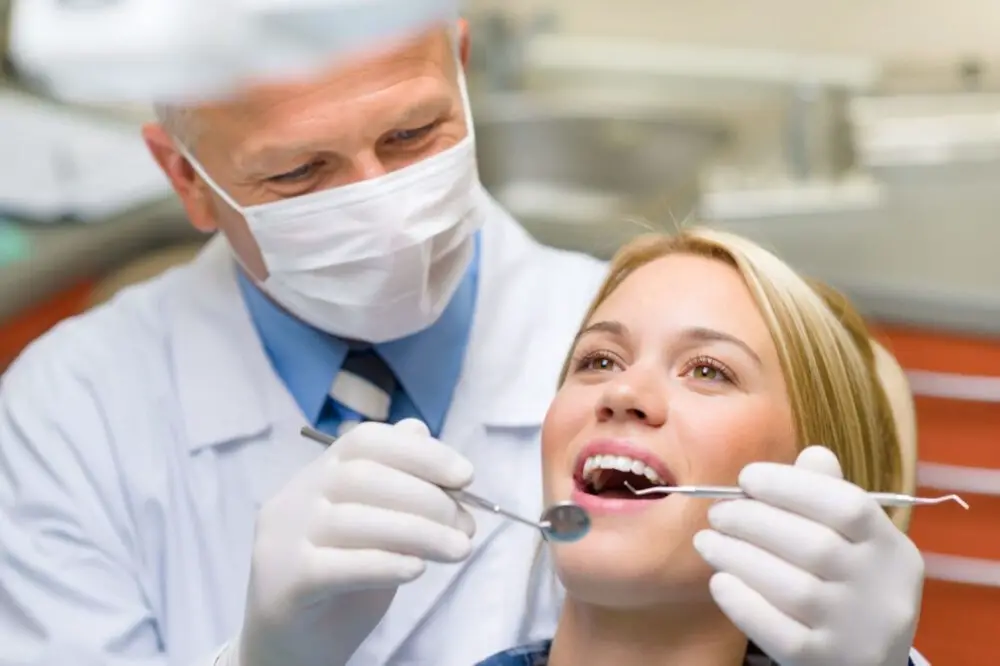
When it comes to treating broken teeth, the options available will depend on the severity of the break. In cases where the tooth is chipped or cracked but not causing any pain or discomfort, treatment may not be necessary. However, if the break is causing pain or sensitivity, your dentist may recommend a filling or crown to restore the tooth’s shape and function. In more severe cases where the tooth has broken off at the gum line, extraction may be necessary followed by a dental implant or bridge to replace the missing tooth. It is important to seek treatment as soon as possible to prevent further damage or infection. Preventative measures can also be taken to reduce the risk of teeth breaking. This includes practicing good oral hygiene habits such as regular brushing and flossing, avoiding hard or sticky foods that can damage teeth, wearing a mouthguard during sports or other physical activities, and seeking treatment for any underlying dental issues such as tooth decay or gum disease. By taking these steps and seeking prompt treatment when necessary, you can help ensure the health and longevity of your teeth.
Dental bonding or filling is an excellent option for fixing minor chips or cracks in teeth. This procedure involves applying a tooth-colored resin material to the damaged area, which is then hardened with a special light. The result is a natural-looking, durable repair that can last for years. Dental bonding is a non-invasive procedure that does not require any drilling or removal of tooth structure, making it a popular choice for those who want to preserve their natural teeth. It is also a quick and painless procedure that can be completed in just one visit to the dentist. If you have a minor chip or crack in your tooth, dental bonding or filling may be the perfect solution for restoring your smile.
When teeth are severely damaged, dental crowns or veneers may be necessary to restore their structure and appearance. Crowns are typically used to cover an entire tooth that has been significantly weakened or broken, while veneers are thin shells that are placed over the front of damaged teeth. Both options can be made from a variety of materials, including porcelain, ceramic, and composite resin, and can be color-matched to the surrounding teeth for a natural look. While these procedures may be more invasive than other treatments, they can provide long-lasting results and improve the overall health and function of the affected teeth.
When a tooth breaks, it can often lead to the exposure of nerves, causing severe pain and sensitivity. Root canal therapy is a common treatment option for broken teeth with exposed nerves. This procedure involves the removal of the damaged nerve tissue from the tooth’s root canal, followed by the cleaning and sealing of the canal to prevent further infection. Though the thought of undergoing root canal therapy may seem intimidating, it is a safe and effective method for relieving pain and restoring the function of a damaged tooth. It is crucial to seek prompt dental care if you experience a broken tooth to prevent further complications and ensure the best possible outcome.
Tooth extraction is a common procedure performed when a tooth is severely damaged or infected beyond repair. It involves the removal of the entire tooth from the socket in the jawbone. The process is carried out under local anesthesia to numb the area around the tooth. The dentist or oral surgeon will then use specialized tools to loosen the tooth from its socket and extract it. After the procedure, patients may experience some discomfort and swelling, but this can be managed with pain medication and ice packs. In some cases, a replacement tooth may be necessary to prevent neighboring teeth from shifting, which can cause bite problems and other dental issues. While extractions are not ideal, they can be necessary for maintaining oral health and preventing further damage.
Broken teeth can result from various causes, such as biting down on hard objects, dental decay, trauma, or a weakened tooth structure due to previous dental work. To prevent broken teeth, one should avoid chewing on hard foods such as ice, popcorn kernels, and hard candy. Wearing a mouthguard while playing contact sports can also prevent dental injuries. Maintaining good oral hygiene, such as brushing and flossing regularly, can prevent dental decay that may weaken teeth. Regular dental check-ups can help identify and treat any dental issues before they worsen, preventing potential tooth fractures. In conclusion, taking preventative measures and practicing good dental hygiene is crucial in avoiding broken teeth.
When teeth break, seeking prompt treatment is crucial to prevent further damage and potential infection. A broken tooth can expose the sensitive inner layers of the tooth, which can be painful and lead to infection if left untreated. Additionally, a broken tooth can affect the way you eat, speak, and smile, which can impact your overall quality of life. Prompt treatment can involve a range of options depending on the severity of the break, including dental bonding, a crown, or a root canal. Ignoring a broken tooth can lead to more extensive and expensive dental work in the future, so seeking immediate treatment is always the best option.
Oral health and dental care are crucial components of our overall well-being. Neglecting these aspects can lead to various dental problems, including tooth damage. It is essential to prioritize oral health by maintaining good oral hygiene practices such as brushing twice a day and flossing daily. Additionally, regular dental check-ups and cleanings can help to identify and address any potential dental issues before they become more significant problems. Avoiding bad habits like chewing ice, opening bottles with teeth, and grinding teeth can also prevent tooth damage. By prioritizing oral health and dental care, we can protect our teeth from sudden breakage and ensure that we have healthy, beautiful smiles for years to come.
Conclusion
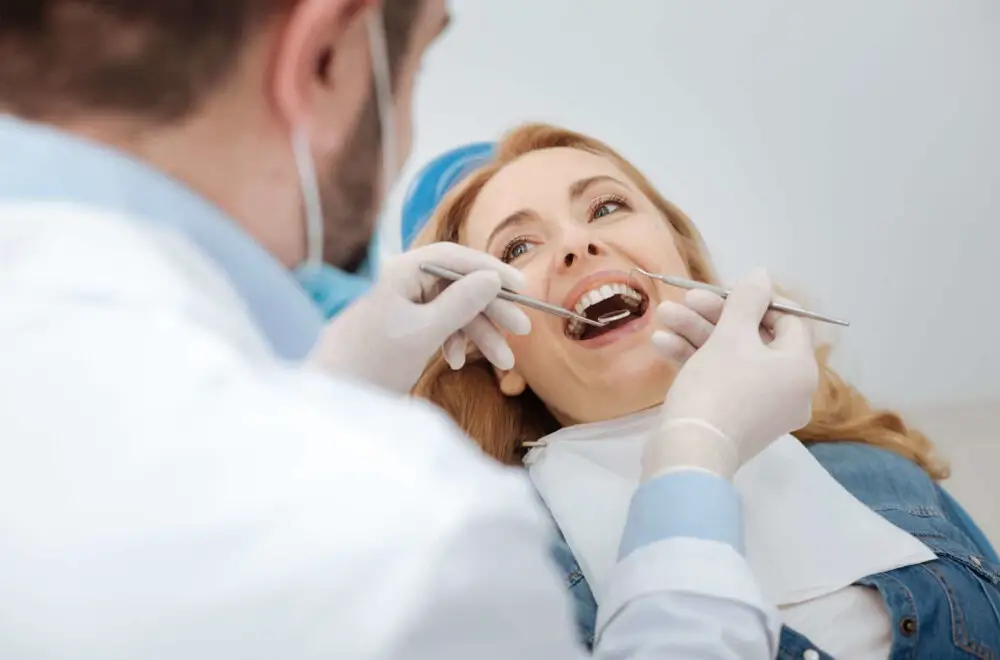
In conclusion, understanding the sudden causes and prevention methods of teeth breakage is crucial in maintaining good oral health. While accidents and trauma can be unavoidable, practicing good dental hygiene and avoiding bad habits such as grinding or biting hard objects can help prevent teeth breakage. It is important to seek professional dental care if you experience sudden tooth pain or breakage to prevent further damage. By taking proactive steps to protect our teeth, we can ensure that our smiles remain healthy and bright for many years to come.

